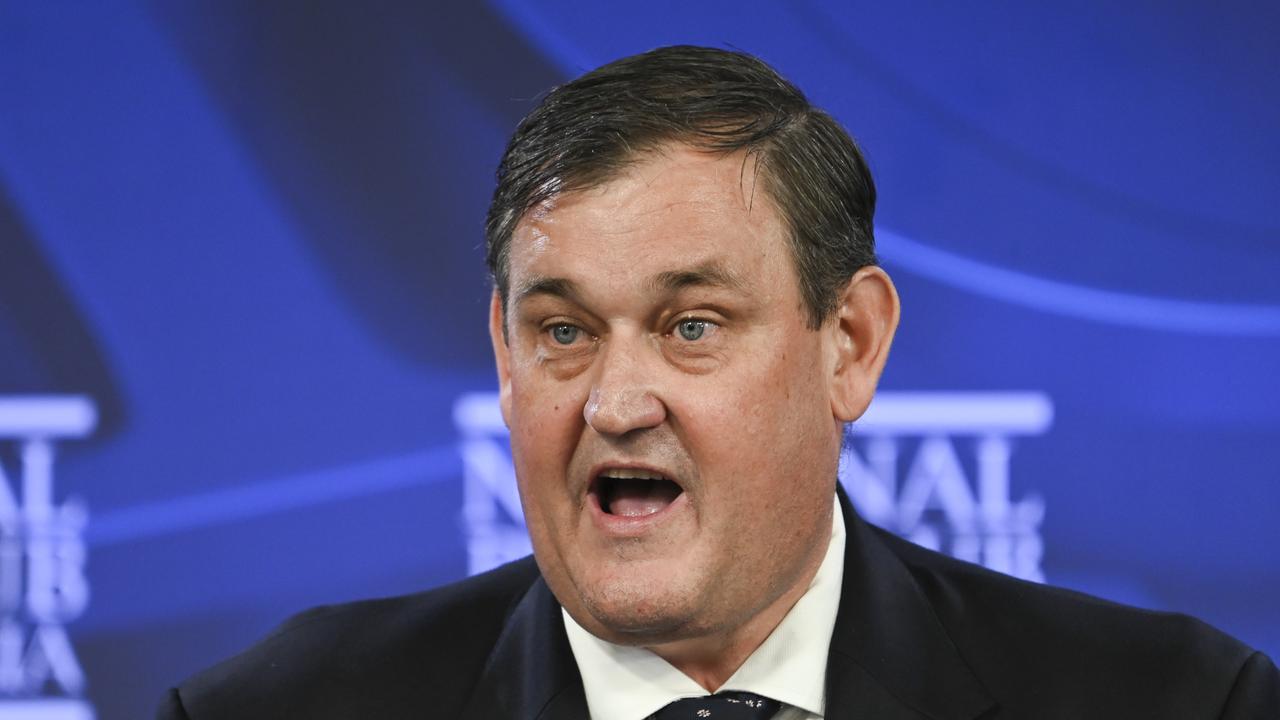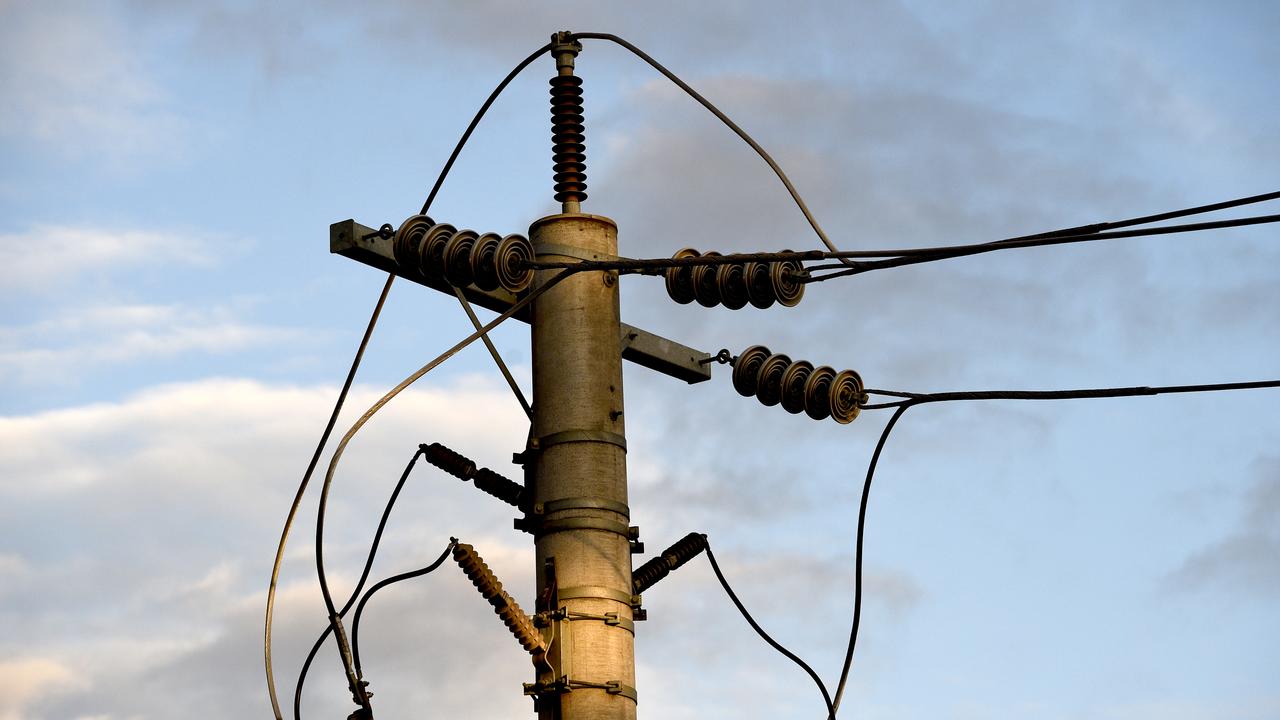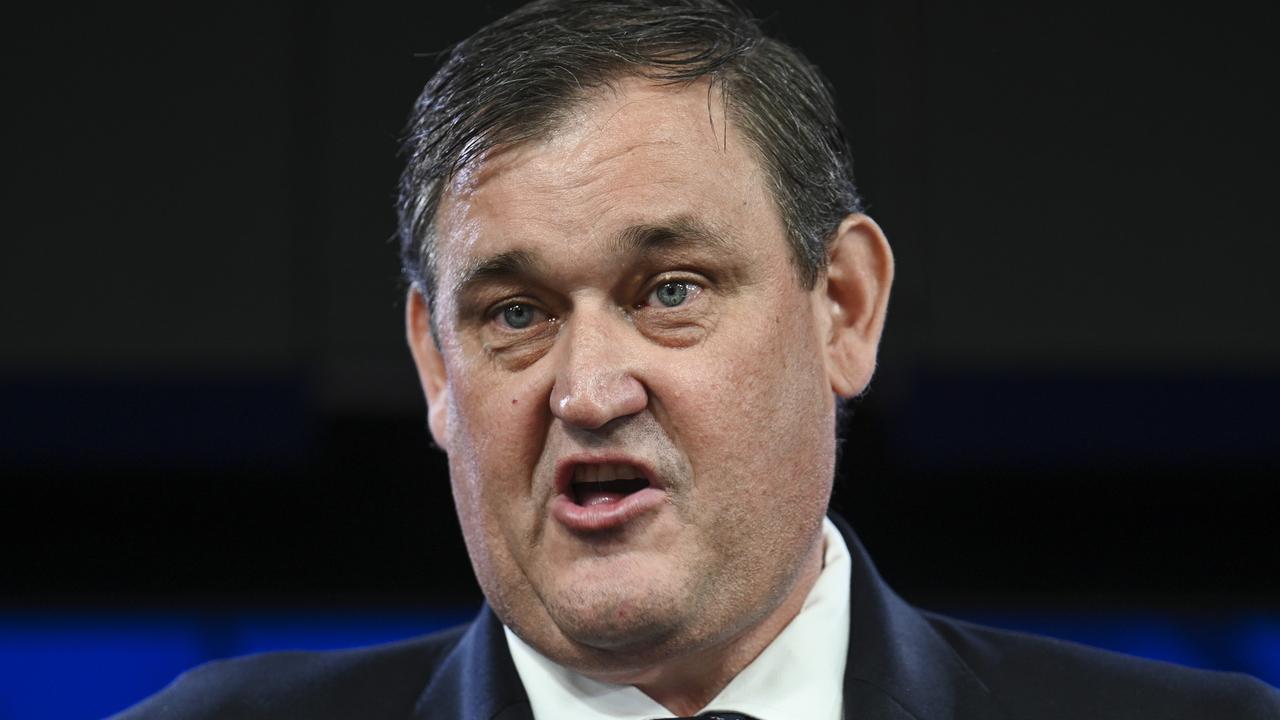Alinta CEO Jeff Dimery says Aussies must acknowledge ‘hard truths’ in net-zero transition
The road to net zero by 2050 will not be easy, and Australians have been warned they must be prepared to face “hard truths”.
Australians must face the “hard truth” of having to pay more for energy in the future as the country struggles through the renewables transition, the chief executive of a major energy company says.
As the government teases further power bill relief in the May budget, Alinta Energy chief executive Jeff Dimery said politicians needed to be more upfront and “honest” with Australians about the impact of net zero by 2050 on their hip pockets.
In a speech to the National Press Club, he said people needed to be prepared to “change behaviour” if they were to have greater “bill control”, warning that the average person “isn’t prepared for that reality”.
He said Australia would spend more as a percentage of GDP on energy, energy services and energy infrastructure.
“Whether we pay through the tax base or pay the large upfront cost of an EV, or batteries and solar, or we’re paying more for electricity from the grid, we will all pay more in aggregate,” he said.
“We need to be honest about that.

“Capital costs more, labor costs more, transmission costs are rising. There are going to be alternatives – electricity might cost more, but your petrol might disappear.
“Getting over the hump of this difficult part of the transition is going to require partnership in all directions.”
Labor has come under pressure over their pre-election promise to slash power bills by $275 by 2025. The government has hinted at extending bill relief in last year’s budget into this coming year as well as the ongoing impacts of the global energy crunch.
Labor insists rapidly accelerating the renewables transition will lower household and business bills and has already made a $1bn pre-budget commitment to ramping up solar panel manufacturing.
The government has an ambitious target of renewable energy generating more than 80 per cent of Australia’s electricity by 2030.
The Australian Energy Market Operator predicts solar and wind capacity in the national grid will triple by 2030, while rooftop solar capacity is expected to double and storage capacity is set to increase.

Realistically, Mr Dimery said getting to net zero by 2050 was a “monumental task” and the country would “struggle”.
“Does that mean we won’t get there? I think it is challenging … Would I stand here today in 2024 looking out to 2050 and tell you something can’t be done? No, I wouldn’t,” he said.
“But I can tell you that absent of some significant changes along the way, we will struggle.”

Mr Dimery also said the question of whether Australia should adopt nuclear energy was a “political question” and “something the folks up the hill really need to resolve”.
“The ability to develop nuclear in this country is not legislated, it is not legal at this point, and I would imagine there is a link in the process to go through to get it to that point,” he said.
“Then there is a lengthy process to go through with development and construction, in which time I will be retired, so it’s probably for the younger folks to debate.”



